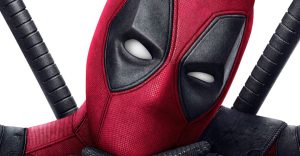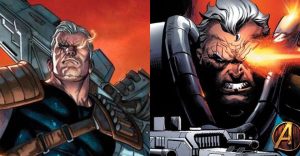Batman: Arkham Origins Studio Nearly Made Suicide Squad Years Ago

Everyone’s favorite rag-tag team of misfit super-villains turned reluctant super-heroes are finally getting their own video game in Rocksteady Studios’ upcoming Suicide Squad: Kill the Justice League, but a game about the team of super-criminals has actually been in the works for more than a decade. DC may have only revealed the new Suicide Squad game at DC Fandome 2020, but DC has been talking about the game’s development in one form or another since 2010. Through multiple teases, Easter eggs, confirmations, studio changes, cancellations, and revivals, a Suicide Squad game actually coming to fruition feels like a sort of mission only the scrappy titular team could pull off.
Though the Suicide Squad didn’t reach mainstream popularity until David Ayer’s Suicide Squad in 2016 – or really until after James Gunn’s universally better-received soft-reboot/sequel, The Suicide Squad in 2021 – the team has actually been around in DC’s comics since the 1980s. Assembled by the tough-as-nails Amanda Waller on behalf of the United States government to go on top-secret and too-dangerous missions that they’re not expected to come back from. The team of would-be-reformed villains over the years has featured iconic characters like Harley Quinn, Deadshot, Captain Boomerang, and the terrifying Batman villain King Shark as well as lesser-knowns like Bronze Tiger, Weasel, Count Vertigo, and dozens more, all of whom were constantly at risk of not making it home alive.
DC Comics Chief Creative Officer Geoff Johns was the first – and only, with no developer or publisher making an official comment at the time – to announce that a Suicide Squad game was in the works at San Diego Comic-Con 2010. Johns didn’t reveal much about the game at the time other than stating that the titular team’s game would be, characteristically for the team, “hardcore violent” (as reported by Engadget) but offered nothing in the way of development progress or an anticipated release date. The general assumption at the time of Johns’ announcement was that the game might be released alongside David Ayer’s Suicide Squad which was actively in development at that time as well. Unfortunately, the only relevant title delivered at the time of the film’s release was a mobile tie-in subtitled Special Ops. The coming game uses some odd mechanics that don’t make sense for Suicide Squad, and isn’t a tie-in with Gunn’s film, but still seems more enticing than the mobile game did.
Assembling (& Disassembling) The Suicide Squad

Even through 2012, Johns continued to provide unofficial updates on the game’s progress, stating in an interview with Kotaku, “we’re working on Suicide Squad; it’s in development right now.” Johns went on to share his excitement around the concept of a game where it was possible for any of the lead characters to die and the intriguing narrative prospects that this could lend to such a game. With no additional clues to how the game was progressing fans could do nothing but speculate as to when and how this game might become a reality, that is until 2013 when WB Games Montréal released the Batman: Arkham Origins games that appeared to allude to a developing Suicide Squad continuity in the Batman: Arkham series.
WB Games Montréal’s Batman: Arkham Origins and Batman: Arkham Origins: Blackgate were both meant to serve as prequels to the Batman: Arkham series of games, and in both games fans caught intentional narrative choices which appeared to build toward a Suicide Squad game. Batman: Arkham Origins gave the games’ first light clue to its existence in a cut-scene where Amanda Waller approaches the notable Suicide Squad teammate Deathstroke to tell him that she’s got a job for him.
The unfolding Suicide Squad narrative continued to unfold in Batman: Arkham Origins’ direct sequel Arkham Origins Blackgate, indicating a progression of continuity for the team. Waller is a much more prominent presence in this sequel, with several different cutscenes in Origins Blackgate involving her and villains of the Suicide Squad interacting. In one such scene, Waller talks about being impressed with Bronze Tiger after his confrontation with Batman. Later, after Batman fights Deadshot, we again hear Waller talking about how her team could use a marksman like him for an unknown job. The game’s conclusion features Waller and Rick Flag – Waller’s appointed leader of the team – flying away in a helicopter with Bronze Tiger and Deadshot who Waller describes as “soldiers” rather than degenerates.
Unfortunately for those waiting for a continuation of the narrative established in the Arkham: Origins games, after 3 years of radio silence on the game’s development it was revealed that WB Games Montréal would be moving forward on a game about Batman’s son, Damian Wayne, instead. Just recently, concept art for the game from the ill-fated Suicide Squad game actually emerged on Twitter. The art features WB Games Montreal logos and is dated 2014, which does seem to back Johns’ claims that the game he’d been describing through that period of time was in fact well underway. WB Games Montreal’s pivot to a Damian Wayne story however, ostensibly put the final nail in the coffin for the long-awaited Suicide Squad game.
The Suicide Squad Game Gets Its Own Shot At Redemption

At the inaugural DC Fandome – the all-virtual fan convention just for fans of DC Comics – fans were not-quite-so surprised then to see the official reveal of WB Games Montréal’s Gotham Knights. The game appears to have grown out of WB Games Montréal’s rumored Damian Wayne game concept and not only leaves behind the Arkham: Origins continuity those games established for the Suicide Squad, Gotham Knights abandons the Batman: Arkham series continuity entirely, existing in its own narrative universe. This announcement fully dashed the hopes of fans still waiting on a Suicide Squad game, until the Rocksteady logo appeared and the acclaimed developers of the original trilogy of Batman: Arkham games revealed Suicide Squad: Kill the Justice League, set within the Arkhamverse and continuing the plot threads established in the Batman: Arkham series.
Rocksteady Studios is touting Suicide Squad: Kill the Justice League as a genre-bending action-adventure game set in an open world Metropolis, featuring some of the lovably sinister members of the Suicide Squad going toe-to-toe with some of DC’s most cherished heroes. In the upcoming game, Amanda Waller assembles the team of expendable mercenaries and sends them into the sprawling city to take down the heroes of the Justice League who have been brainwashed into villainy by the alien Brainiac. The game features four playable characters including a take on Origins’ Deadshot, Arkham’s Harley Quinn, as well as the Arkhamverse debuts beloved Suicide Squad members King Shark and Captain Boomerang, and can be played solo – switching between characters at will – or in a four-player co-op multiplayer mode.
While we may never know exactly what the long-rumored Suicide Squad game would have become, it appears that this new iteration may not be that far off from the original concept that Geoff Johns described back in 2010. While WB Games Montréal’s Gotham Knights has decided to leave the Batman: Arkham narrative universe and all the continuity they’d established for the Suicide Squad in the Origins, Rocksteady has taken the reins and according to the Suicide Squad game’s creative director Sefton Hill, picks up right after the events of the Batman: Arkham series and continues to follow some of the franchise’s established narrative threads and storylines. It may have taken over a decade – and then some, now that the Suicide Squad game has been delayed from its original 2022 release date – but players will finally get their chance to experience the Suicide Squad in the Arkhamverse when Suicide Squad: Kill the Justice League releases in 2023.
Source: tatlinksy/Twitter, Kotaku, Engadget
About The Author

















